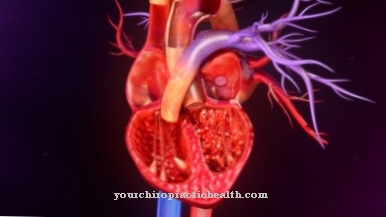In the course of life, a person inevitably goes through an innumerable number of events and experiences. The memory of these experiences defines people and shapes them in their later life. So that's that Recall significantly involved in developments and changes - consciously or subconsciously.
What is remembering?

Mistakes are there to be learned from. Memory and remembering are partly responsible for this. The term describes the storage and retrieval of past events. These are divided into experiences (episodes) and the knowledge about these experiences (events).
Remembering can be active or passive. Active recourse to memory occurs when the person consciously tries to remember something in the past. The reasons for this can vary, but are often related to stories about the past or the recapitulation of what happened.
The passive and spontaneous memory, on the other hand, is random. This can happen when certain connections in the brain are triggered by associations, similar situations arise again or a certain feeling is repeatedly evoked.
Memories are all subjective and manipulable. They go hand in hand with the assessment and evaluation of experiences. Certain anchor points are remembered, things that seem important and trigger emotions.
Disasters, global events and private events that affect emotionally or remain active for a long time are stored in long-term memory. In addition, it depends on a person's current condition what they store and what the brain selects and considers unimportant.
Function & task
Memories are not static, but changeable. Above all, they fulfill an important social function. In social coexistence and everyday life, it is not always relevant what actually happened: Conversations about the past and the mutual influencing of memories often shape social interaction and thus friendships and acquaintances.
Remembering also plays a crucial role in growing up. If people make mistakes that burden them or trigger unpleasant consequences, they will remember them. This memory inevitably creates a negative feeling and, at best, prevents the same mistakes from being made again. This makes memory a fundamental part of the learning process.
Remembering, experiences and events make people what they are. The past determines how a person is in the present, what experiences they have had and how they dealt with them.
In addition, only memories make interaction with other people possible. If the brain were to delete what it has experienced immediately, humans would not be able to remember people. And that applies not only to people, but to everything that seems to be taken for granted in everyday life: the memory of places, trips, your own apartment, events, meetings - right through to the place where the refrigerator is. Without remembering, humans would not even be able to remember what a refrigerator is for. In short: almost no living being is viable without memories. The range of memory capacity differs from living being to living being.
However, nobody will be able to remember everything that they have experienced, since the brain also has a limited storage capacity. Unimportant things are forgotten over the years to make room for new memories.
You can find your medication here
➔ Medicines against memory disorders and forgetfulnessIllnesses & ailments
There are several factors that affect remembering. The current emotional state of the individual at the time of the occurrence or the recording of events is often responsible for this. Memories are stored in multimedia. This means that they run as pictures or films in the human mind. But smells, feelings and colors are also saved.
Long-term memory (episodic memory) compresses the information. In order to access it, the brain has to process the information again. In this work-through, the period between the moment of the event and the memory plays a major role. In the meantime, various factors falsify the relative authenticity of the experience.
In addition, there may be an adaptation (assimilation) of various events that were experienced differently but evoked similar feelings. The similar perception leads to the fact that they can no longer be perceived separately from each other later.
A disturbed memory is triggered, for example, by the consumption of alcohol or drugs. Likewise, memories made during hypnosis are not reliable. The same goes for memories from toddlerhood, as the perception is different until the age of three.

A memory is particularly critical when it is associated with strong emotions. Over the years, feelings can accumulate and change. This not only leads to a possibly falsified recording at the time of the occurrence, but also to an even more disturbed memory in the future.
However, various diseases can also affect memory. For example, deficiency symptoms and stress are a common reason for memory dropouts. In addition to diseases such as dementia, which primarily affect the memory, accidents with traumatic brain injury or strokes can also be reasons for dropouts or amnesia.
This also applies to almost all diseases that affect the brain. Meningitis can already cause memory loss. In amnesia, the doctor differentiates between different degrees of severity. Often the memory loss is short-lived, but sometimes it is irreparable. In this case, the memories cannot be restored.













.jpg)

.jpg)
.jpg)











.jpg)